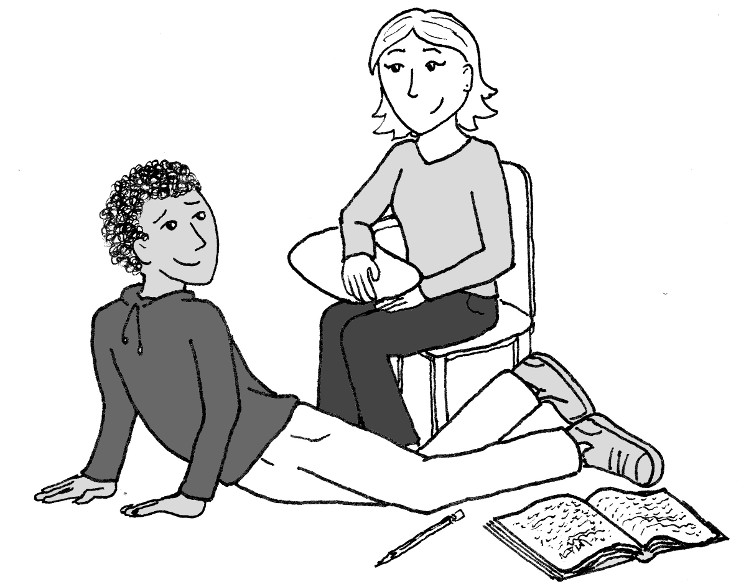Discover interesting psychological effects
They happen around us, but few people pay attention.
first.

A person is more likely to be loved if they show that they still have imperfections.
Perhaps this is the most interesting psychological effect that everyone has experienced, whether it is aware of it or not. Imagine that you are in love with a girl, seemingly talented, kind and graceful. You happen to see her stumble on the road. For many reasons, the feelings you give her will increase, and you find that you are even more attracted to the awkwardness.
In the fields of sports, business and politics, this psychological phenomenon is called the Pratfall effect, analyzed and named by 1996 researcher Elliot Aronson. Research shows that we tend to Like imperfect people, people who make mistakes and know how to get errors. While it is not true in all cases, for example men will be attracted to clumsy girls rather than the opposite, the basic principle here is that a person will be more easily loved if they show They still have imperfections.
2. Allee effect

This effect has changed the usual thinking about the increase in population size according to normal biology.
The Allee effect is stated as the rate of increase in the size of a population proportional to the number of individuals of that population. In other words, females will give birth more when population density is higher. This effect is named after American zoologist Walter Clyde Allee. This effect has changed the usual thinking about the increase in population size according to normal biology.
At the time of the study, people still believed that a species would grow more prosperously at a lower population, as the food source would become more abundant. However, Allee proved that when the population declines, the ability to protect herds also decreases. That is, the bigger a group, the faster it will grow, at a certain stage.
3. Motivational theory and audience effect

The audience effect refers to the audience's influence on the performer.
The audience effect refers to the audience's influence on the performer. This phenomenon began to be studied in the 1930s, and is given in two cases: some people will be more confident when many people follow, while others will be stressed and perform much worse. compared to their real ability.
In 1965, psychologist Ribert Zajonc hypothesized that motivation theory could explain the audience effect. Zajonc believes that the factor determining whether a crowd causes negative or positive effects on a performer depends on the 'ease' of the performance. If the performer believes that she / he will succeed, the cheers of the audience will be more confident to complete the performance and vice versa, if from the beginning, losing confidence is the passion of The audience will cause her to lose her temper.
4.

If you swing small drops of water onto a hot pan, they move in a panic direction on the pan surface.
Named after a German doctor Johann Gottlob Leidenfrost in 1796, the Leidenfrost effect is a physical phenomenon that occurs when a liquid comes into contact with a plane hotter than its boiling temperature. Meeting these conditions, the liquid creates a protective layer of vapor around it to counteract the phenomenon of rapid boiling. Therefore, if you swing small drops of water onto a hot pan, they move in a panic direction on the pan surface. In the above case, the water will boil and evaporate much more slowly if the temperature of the pan is between the Leidenfrost boiling point and boiling point.
5. Pygmalion effect

This effect is essentially a kind of predictor of self-satisfaction.
This effect is stated: the expected level tends to correspond to the performance results. Of course, this is not entirely true in all cases, but according to research on psychological effects, it is the majority. The name Pygmalion is taken from the movie 'My Fair Lady' , also known as the Rosenthal effect . This effect is essentially a kind of predictor of self-satisfaction.
The influence of Pygmalion is explored a lot in the areas of sports, business and especially in education. In business, this effect is tested when managers receive results based on their expectations for employees. Similarly, the research of Robert Rosenthal and Lenore Jacobson on the influence of Pygmalion in the classroom shows: when teachers expect high results from students, these students often do not disappoint them.
6. Bruce effect

This effect was first discovered by a British zoologist Hilda Bruce.
During pregnancy, children of rodents often destroy their own fetus when it detects the smell of a strange male. This effect was first discovered by a British zoologist Hilda Bruce, when he observed some species of voles, gelada monkeys and even lions. Doubting that conducting research on caged animals could lead to false results, researcher Eila Roberts at the University of Michigan conducted research in the wild world. But both cases lead to the same result: why can a mother animal kill her child?
Roberts spent five years researching Ethiopian gelada, and collecting data from 110 females in 21 different groups. After analyzing the hormonal patterns associated with pregnancy, Roberts found that among the groups with the leading male gelada, many females would abort themselves early on. The groups that do not have males have a higher birth rate. The answer is that males tend to kill newborn gelada, because females only continue to reproduce after it no longer has to feed small ones, and the males become impatient. The children break the pregnancy because it knows how children will be killed, and doing so will save time and effort.
7. Panorama effect

Panoramic effects can be considered the least popular.
Among the psychological effects we have ever known, observed, or studied, the panoramic effect can be considered the least popular - only 534 people have the opportunity to experience the conditions to feel. get this effect. When astronauts are in orbit on the Moon's surface, where they can see the whole earth, many report that they have a very real sense of scale and perspective.
Named by writer Frank White, this effect can be movement, embarrassment, excitement and thrills, as seen when the panoramic view of the Earth is visible. Astronauts return with a completely different sense of human connection, the nonsense of cultural boundaries, and they are more concerned with the environment.
8. Sleeper effect

This effect is related to the influence of the messages that a person gets to their consciousness.
The Sleeper effect is a psychological state that receives a lot of attention and also causes a lot of debate, related to the influence of the messages a person receives on their consciousness. In general, when a person views an ad with positive content, a positive relationship with the message, or that product is formed. However, over a short period of time, it fades away and eventually loses. Conversely, under some conditions, if the message comes with a highlight or an intellectual connection that is intimately associated with the viewer's life, the connection to that message will last longer.
- Understand your mind through an interesting psychological test by an Austrian doctor
- Try 'brainstorming' with interesting psychological experiments
- The strange psychological effect entitled
- 6 psychological effects when washing hands
- Consequences of terrorist reading
- The Baader Meinhof effect - once you know something, it appears everywhere
- 10 interesting psychological facts that help you better understand yourself
- 'Psychological manipulation' helps you convince others
- Animal World - Interesting things you don't know
- The most 'inhumane' psychological experiment in history and the controversial facts behind
- The affective syndrome and tricks spread six psychological traps that made love impossible to escape
- Going from one surprise to the other is different from the interesting things about all things
 'Fine laughs' - Scary and painful torture in ancient times
'Fine laughs' - Scary and painful torture in ancient times The sequence of numbers 142857 of the Egyptian pyramids is known as the strangest number in the world - Why?
The sequence of numbers 142857 of the Egyptian pyramids is known as the strangest number in the world - Why? History of the iron
History of the iron What is alum?
What is alum?